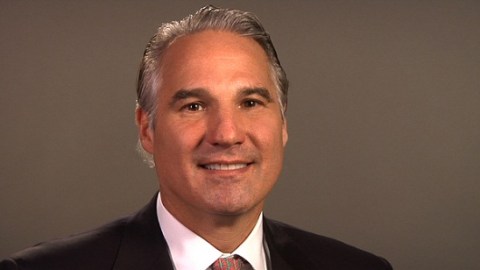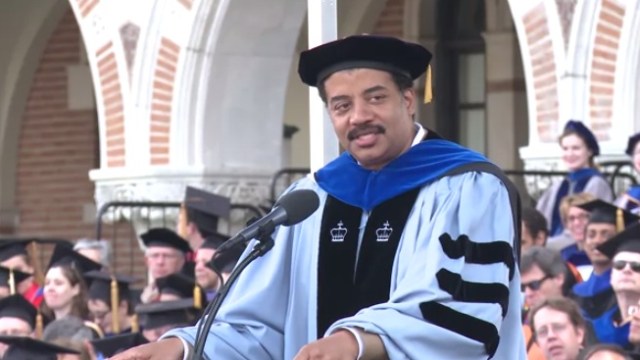A Conversation with Matt Arnold, Head of the Office of Environmental Affairs, JPMorgan Chase

In this ongoing series, I talk with thought leaders about ideas in my book Nature’s Fortune and trends in the environmental movement.
Next in the series is my conversation with Matt Arnold, Managing Director and Head of the Office of Environmental Affairs, JPMorgan Chase.
Mark Tercek: I moved from Wall Street to the conservation world. You’ve gone the other way, from World Resources Institute (WRI) to JPMorgan Chase. What is an environmentalist doing on Wall Street?
Matt Arnold: Being an environmentalist! JPMorgan Chase presents a huge platform for advancing environmental outcomes. Of all the jobs I have had—the EPA, starting an NGO, WRI, being a consultant—none has had greater potential to protect the environment.
Our business is to provide financial services to people and companies, to lend them money and arrange capital so they can achieve their goals: buying a house, building a factory, drilling a well or opening a small business. So why not protecting forests or recovering fisheries or restoring wetlands?
That’s our challenge: to figure out how to invest a lot of money—billions, not millions—in conservation.
Mark Tercek: In Nature’s Fortune, I argue that investments in nature can produce big returns for people, businesses and governments. What role do you see for JPMorgan in encouraging such investments?
Matt Arnold: Let’s be clear what we’re talking about investing in. JPMorgan has provided over $5 billion in capital to the clean tech industries in each of the last few years—mostly for renewable energy. We have billions invested in green buildings, including our own global headquarters. We also spend a lot of our time working with our clients in sectors where there are sensitive environmental issues to navigate. This is one of the main areas I focus on. Our business views us as trusted advisors—not in the provision of finance—but in the provision of guidance on environmental performance. This is good risk management—but it’s also just good business.
What we have not done—but are planning to do—is to invest directly in nature. We are looking to finance projects where the primary objective is to improve the environment. We are working with partners in the conservation community to design financing techniques that will enable a much larger amount of private capital to be put to work for nature. If we get it right, we’ll deliver both returns for investors and sustainable natural resource management and conservation at a commercial scale.
Mark Tercek: You and I are clearly in agreement that businesses can be constructive allies for the environment. What can we do to fully leverage this potential?
Matt Arnold: I used to think all we needed was for CEOs to see a business opportunity from being green and we could all go home. It’s more complicated than that.
We are all heavily influenced by pre-conceived notions of how “business” or “environmentalists” behave and what they are seeking to do. You need to get past those stereotypes. Most people are honest and caring, and want cleaner water, air and healthy habitat for all critters. Most people want an economy that can thrive—without growth coming at the expense of nature or communities. Most people want to make a difference and work to improve our world. There is a role for all of us.
I believe the level of communication required to understand different perspectives and come to mutual agreement on shared objectives is much higher than people think. Business can and is making progress and innovating. But I also believe we need regulation to set a floor and provide the right signals—to keep business moving in the right direction, at an appropriate level of performance.
And finally, I often think people are not ambitious enough when setting their goals. If your project or partnership is successful, will it make a big difference to the environment? If not, why bother? Do something else.
Mark Tercek: In your view, what is the environmental movement doing well? How can we improve?
Matt Arnold: If by the environmental movement we’re talking about NGOs, I think they continue to point out problems well. I think they are excellent at creating a sense of urgency among their base.
But I think they need help communicating across the aisle. Words like sustainability and global warming still alienate large influential communities who could get very enthusiastic about clean water, clean energy, energy efficiency and wildlife habitat. I also think NGOs need a much stronger tilt toward solutions. I hold you at The Nature Conservancy in very high regard there. You all get things done.
Mark Tercek: What advice do you have for environmental organizations as we seek out collaborations with the private sector? How can we get more done together?
Matt Arnold: Be inclusive. Get beyond unexamined assumptions. Understand the way your partners work and the tools they have. Be very ambitious.
Mark Tercek: If you had my job leading the Conservancy, what would you make your top priorities?
Matt Arnold: I would continue to have science guide the organization’s understanding of the survival threats to eco-systems from climate change, and factor that into a public priority setting process. The context in which we work is very dynamic and the Conservancy’s work needs to take account of and reflect that dynamism. I would be vigilant about priorities and creating scale of impact by focusing on a set of highly critical and protectable places. I would make sure we build and support a thriving team at all levels (staff, board, funders) that can work effectively with a diverse set of partners. And I would fill our project pipeline with ten times as much work as we had resources for, to push us to grow and get more done.
Matt is the Head of the Office of Environmental Affairs at JPMorgan Chase and leads the firm’s efforts to be a leader among financial services companies in protecting the environment while enhancing business success. The team develops environmental strategy, policy and guidance across JPMorgan Chase’s businesses, supports clients to identify and mitigate environmental risk, and enhances environmental outcomes throughout the firm’s operations.
Prior to Joining JPMorgan Chase, Matt was Principal and lead of Sustainable Business Solutions at PwC. While at PwC, he helped clients achieve business success from their sustainability strategies and investments. He focused his team to deliver solutions that targeted revenue growth, cost reduction and risk mitigation in industrial, financial, airline, food and consumer product companies.
Matt was co-founder of Sustainable Finance Ltd. which helped financial services companies to develop sustainability strategy, manage environmental and social risk and to identify environmentally superior investment opportunities. His clients included commercial and investment banks, insurers, real estate companies, industrial products and development banks. Sustainable Finance was acquired by PwC in December 2008.
Matt was COO at the World Resources Institute, a sustainable development Think Tank. He held marketing positions with IBM, investment banking at Merrill Lynch, and in business development with Sante Fe trading, Hong Kong. Matt founded the Management Institute for Environment and Business which was a pioneer in presenting environmental challenges as business opportunities to companies and business schools.
Matt holds an AB degree in Psychobiology from Harvard College, an MA in International Relations from Johns Hopkins University, and an MBA from Harvard Business School.





